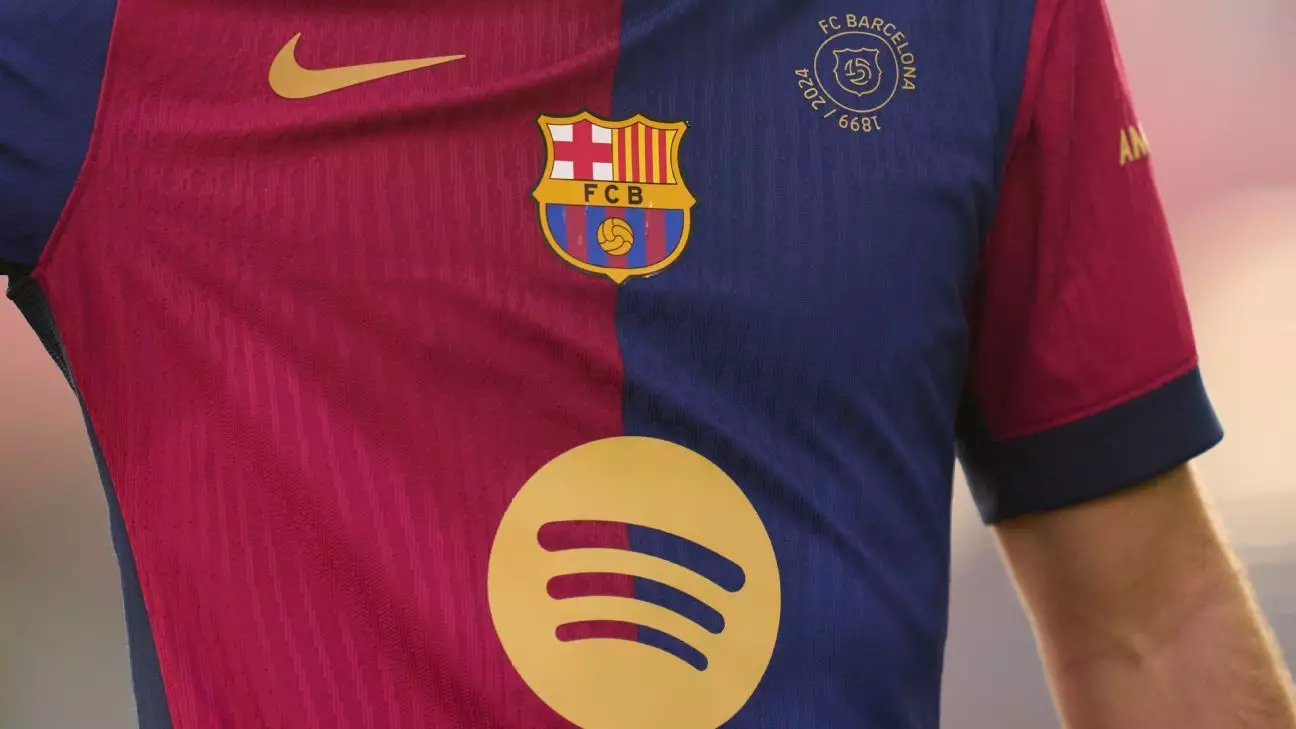In a significant development for FC Barcelona, club members, known as socios, have overwhelmingly approved a transformative long-term partnership with Nike. President Joan Laporta announced this alliance during an emergency assembly, emphasizing its unprecedented nature in the realm of sports sponsorships. With a voting outcome of 419 in favor, 27 against, and 22 abstentions, the deal solidifies Nike’s position as a primary collaborator with the iconic Spanish team. The financial implications of this agreement promise to reshape the club’s future, alleviating some of its ongoing fiscal challenges.
While the full financial details of the partnership remain under wraps due to a confidentiality agreement, initial reports suggest that the contract is valued at over €100 million ($104.2m) annually, prior to any bonuses. This projection places it at the forefront of lucrative sponsorship deals in sports history, with Laporta asserting its significance for both the financial health and global stature of the club. By securing such a noteworthy contract, Barcelona aims to enhance its operational budget, crucially aiding in compliance with LaLiga’s strict financial regulations.
Comparatively, other major clubs like Manchester United and Real Madrid have also secured significant sponsorship deals, highlighting the competitive nature of football’s commercial landscape. For instance, United’s partnership with Adidas, valued at £1 billion over ten years, further illustrates the escalating stakes in this arena.
Members’ Concerns and Reactions
Despite the favorable vote, the assembly was not devoid of skepticism. Some members raised pertinent questions regarding the transparency surrounding the deal’s financial specifics. The desire for clarity on merchandise pricing was also evident, showcasing a broader concern about the balance between commercial successes and fan accessibility. Additionally, the involvement of agent Darren Dein drew criticism, with some socios questioning the implications of his influence in both the Nike agreement and the club’s sponsorship deal with Spotify.
Laporta addressed these concerns head-on, emphasizing that Dein’s expertise was instrumental in navigating the complexities of modern sports marketing. This response indicates a keen awareness of the members’ sentiments, underscoring the importance of maintaining trust and transparency within the club’s executive decisions.
The ramifications of the new contract are pivotal, particularly as Barcelona scrambles to rectify significant financial imbalances. As of September, the club was reported to exceed their LaLiga-mandated financial cap of €426 million by approximately €60 million. The new Nike agreement, although substantial, is not expected to singularly resolve these issues or facilitate the registration of key players like Dani Olmo and Pau Víctor for the second half of the season. This ongoing concern raises questions about the efficacy of the deal in achieving immediate financial stability.
Barcelona is fiercely pursuing alternative methods to secure the necessary registrations for its players, including potential legal routes. This approach highlights the degree to which the club is navigating precarious financial waters, grappling with the realities of a landscape altered by economic adversity and regulatory scrutiny.
FC Barcelona’s renewed partnership with Nike stands as a monumental step toward financial recovery and revitalization. The deal not only promises to strengthen the club’s economic position but also reaffirms its legacy as a global football powerhouse. However, the path to financial stability remains fraught with challenges. The board’s commitment to transparency, coupled with strategic financial management, will be crucial as they work to reconcile operational budgets with fan expectations. As the club embarks on this new chapter, securing the loyalty and trust of its socios will be as vital as the commercial successes that lie ahead. The coming months will be telling as Barcelona navigates these complexities, striving to return to the forefront of both competitive and economic arenas within football.

